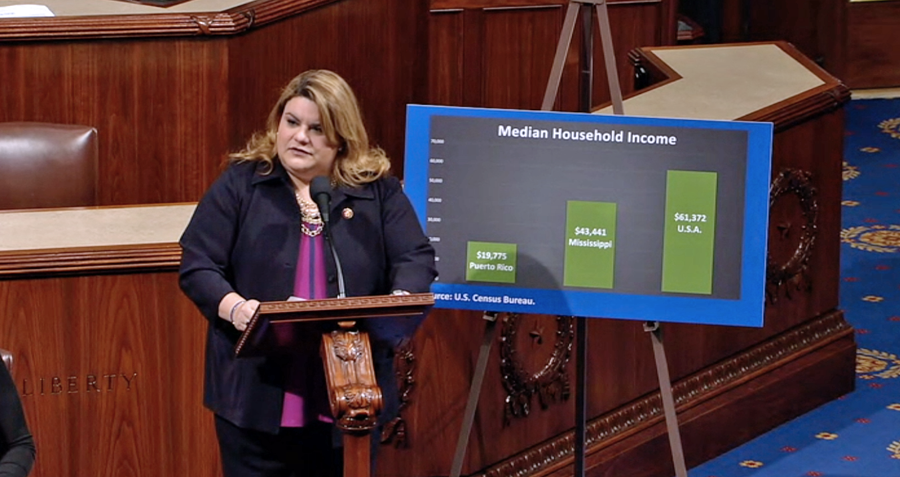Private sector balks at proposed municipal patent hike

 The Private Sector Coalition, which brings together more than 30 organizations from various sectors of the island, called on the Legislature Wednesday to halt the course of House Bill 971 and warned of the negative effects it would have on the local economy.
The Private Sector Coalition, which brings together more than 30 organizations from various sectors of the island, called on the Legislature Wednesday to halt the course of House Bill 971 and warned of the negative effects it would have on the local economy.
“At a time when the island seeks economic development strategies to get out of the worst crisis in its history, Bill 971 aims to almost double the tax rate of municipal patents [taxes] from its current maximum of .5 percent to .9 percent in the case of most businesses,” the Coalition said in a statement, adding that in the case of financial businesses, it would increase from 1.5 percent to 1.9 percent.
The Coalition opposes the bill’s approval because an increase to a tax of this nature, that goes against volume and not on profits, will end up “strangling” the operations of thousands of businesses that are currently vulnerable, and will increase the cost of living for island residents, the group warned.
The group further argued that this bill is similar in its application to the “National Patent” implemented by former Gov. Alejandro García-Padilla’s administration and is opposite to the current government’s platform based on the mantra that “Puerto Rico is open for business.”
Coalition representatives also reminded lawmakers of the so-called “Patentazo,” a failed legislative attempt by the New Progressive Party to institute a tax that would negatively affect the economy.
“As you will recall, one of the most devastating consequences of the ‘National Patent’ was the cascading effect of cost increases in the chain — from importers, distributors, manufacturers and merchants — as it was a confiscatory sales tax,” said Manuel Reyes, executive vice president of the Puerto Rico Chamber of Food Marketing, Industry and Distribution (known as MIDA by its Spanish acronym), a member of the Coalition.
“This ended up strangling the finances of the companies and increasing the prices of the goods and services that the consumer pays. At the moment, neither island consumers nor the productive sector can take any more taxes,” he said.
“That was the failed strategy that brought us here. We recognize that there is a need for income but the approach has to be to obtain it through economic growth,” the executive added.
The group was emphatic in suggesting that an increase in municipal patents, without first exploring other measures, including collecting on currently untaxed properties, pursuing tax evaders, eliminating taxes on inventories and reducing discretionary expenses, among other possible measures, would result in a serious blow to the private sector and the consumer’s pocket.
“House Bill 971 is an isolated measure, exclusively for municipal collections, which does not appear to be part of any coherent economic development strategy. It will not be enough to save the municipalities at the expense of more private jobs,” added Reyes.
Meanwhile, Lymaris Otero, executive director of the Retailers Association, said the bill’s major shortcoming is that it is based on a company’s gross sales, without taking into account all operational expenses such as payroll, utilities, rent, depreciation or other taxes.
“Therefore, the tax is imposed without considering the operation’s economic position,” she said. “In most cases, businesses do not generate enough net income to be able to comply with this tax as is the case of the retail industry that operates with relatively low margins.”
“Increasing taxes is not the solution in situations of economic crisis, the alternative is to revive and encourage commercial activity with the creation of new jobs, new investment, etc. Taxes like this go in the opposite direction to encourage the economy,” Otero said.
Puerto Rico Chamber of Commerce President David Rodríguez said island businesses are “currently unable to absorb an additional cost, much less a tax directed to the gross sale, that is not related to profit margins. It is possible to anticipate the permanent closure of many businesses when they can not deal with this new tax burden.”













